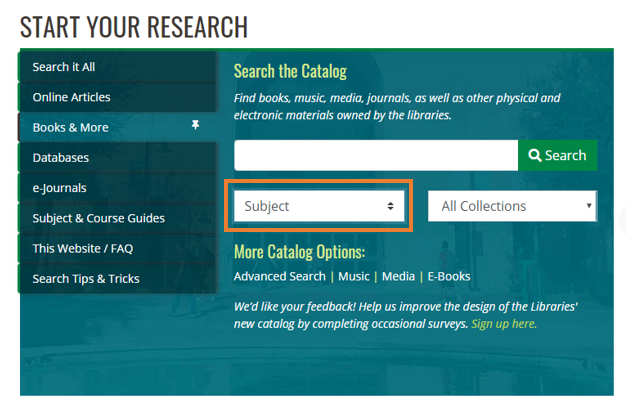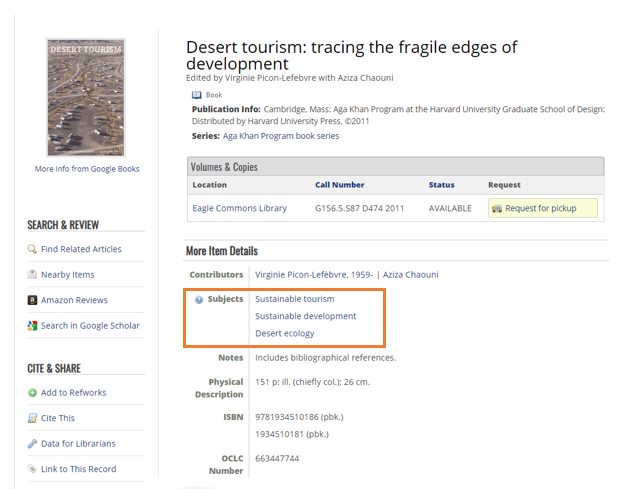At the beginning of your research, you may simply have a subject. You’re writing a paper on Mary Wollstonecraft Shelley or sustainable tourism—but you’re not sure what’s exactly out there in terms of information resources. Besides utilizing keyword searching, executing a subject term search can help you locate all the resources UNT has cataloged under a specific subject, since the associated subjects are assigned as access points (“Access Point,” n.d.).

Screenshot of subject term search from our library catalog
Another way to utilize subjects in your search on the catalog is by starting your research journey from one specific catalog record. If you find an item that you’re interested in, there’s a simple way to see what else is within the catalog that is “like” it in terms of subject.

Screenshot of item record from our library catalog
Conducting research in college is difficult enough—sometimes you’re learning how databases work, how a new essay structure operates, or how to research an unfamiliar topic and don’t know where to begin. Understanding the different ways to utilize the catalog and its features to your advantage can be liberating and stress relieving.
I hope that in your next research endeavor you’re able to test out the Subject search feature and find more valuable resources!
Reference
Access Point. (n.d.). In J. M. Reitz (Ed.), Online Dictionary for Library and Information Science. Retrieved from https://www.abc-clio.com/ODLIS/odlis_a.aspx



Leave a Reply